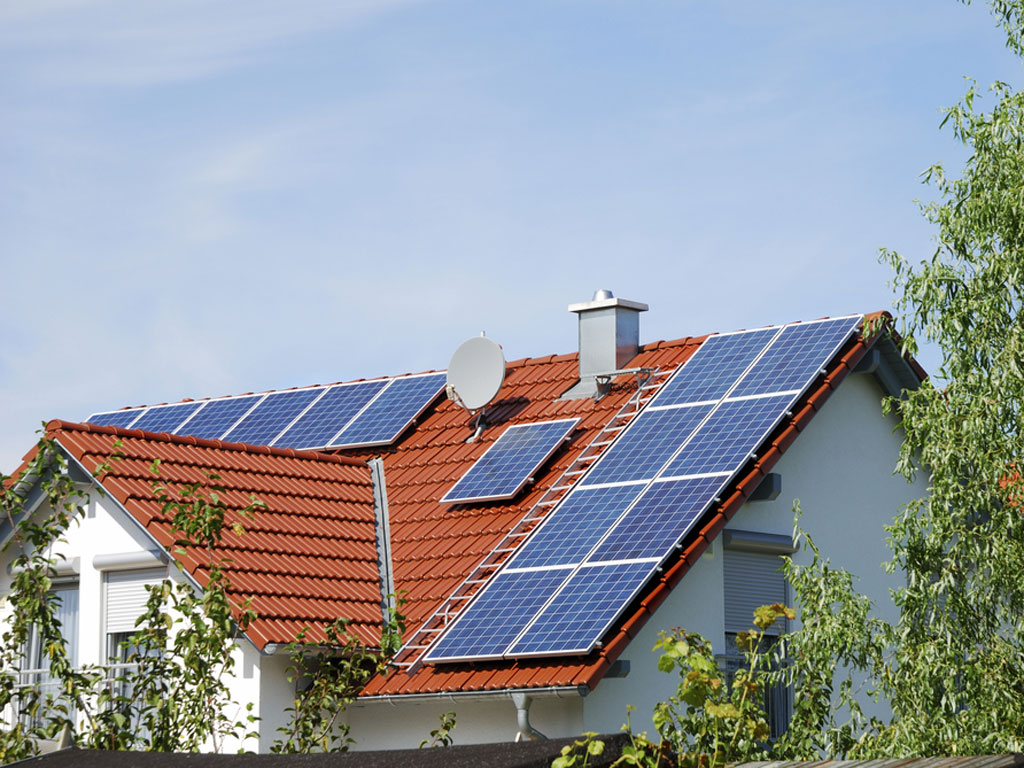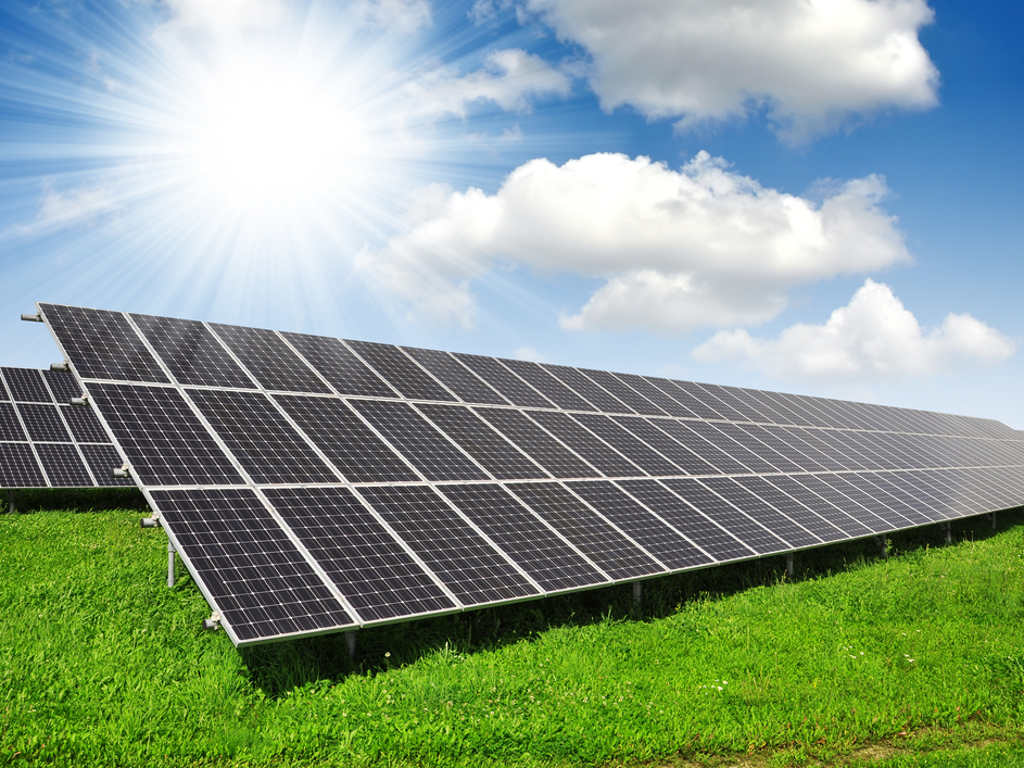Used-up solar panels can be hazardous waste – What to do when they are no longer usable?
Source: eKapija
 Thursday, 11.06.2020.
Thursday, 11.06.2020.
 14:58
14:58
 Thursday, 11.06.2020.
Thursday, 11.06.2020.
 14:58
14:58
Illustration (Photo: Shutterstock / manfredxy)

As the Ministry of Environmental Protection told eKapija, there is no special landfill in Serbia for this kind of waste, and according to the information available to the ministry, the City of Pozarevac has been addressed by the future investor in the area of landfilling and recycling of solar panels.
– This kind of waste can be recycled, as, according to the Law on Waste Management, the producer and/or the owner of the waste are obliged, after obtaining the Report on the Examination of Waste, to hand the waste over to the operator that has a license for managing that type of waste. The list of operators that have the permits for the collection, transport, storage, treatment or reuse or disposal of waste are in the register of the issued permits, which can be found on the website of the Environmental Protection Agency at www.sepa.gov.rs – the ministry says for our portal.
Serbia has considerably more sunlight hours than most of the rest of the European continent, between 1,500 and 2,200 a year, so the popularity of solar panels, as the most significant means of using RES, is not surprising.
As the ministry says, if solar panels can no longer be used, they are considered waste, which needs to be handled by the producer or the owner, in line with the pertinent regulations.
– The owner and/or other handler of waste, according to Article 27 of the Law on Waste Management, is responsible for all the costs of waste management. The costs of disposal are handled by the owner and/or other handler who directly hands over the waste to a collector or a waste management facility, and/or the previous owner and/or other handler or producer of the product in which the waste originates. The responsibility and the obligations of the owner and/or other handler of waste are also upon the person taking part in the flow of waste as an indirect handler, which practically does not own the waste. The transfer of waste can only be carried out between legal entities or entrepreneurs which run the documentation in line with this law – the ministry points out.
The disposal of waste meant for recycling is banned in Serbia, and for a waste to be disposed of at a landfill, it needs to have a reference in the Report on the Examination of Waste, issued by the accredited laboratories for the the examination of waste.
Illustration (Photo: Shutterstock)

Are used-up solar panels hazardous waste?
The information about which category of waste solar panels belong to can only be given after the waste is inspected, the ministry emphasizes.
– According to Article 8 of the Law on Waste Management, the waste is categorized in line with the waste catalog. The owner and/or other handler of waste, that is, the operator, is obliged to classify the waste properly, in line with this law – they say.
In order to determine the composition and the dangerous characteristics of the waste, the owner or the handler of waste is obliged to carry out an examination of the hazardous waste, as well as the waste that could be hazardous due to its origin, composition and characteristics.
– When the producer or the owner of the waste obtains the Report on the Examination of Waste, which is issued by authorized waste testing labs, the waste can be handed over to the operator which owns the permit for collection, transport, storage, treatment, reuse or disposal of waste – the ministry points out.
Circular economy
Circular economy is an increasingly present topic in our country as well, both due to the real needs for sustainable development and the implementation of the standards entailed by Chapter 27 in Serbia's accession negotiations with the European Union.
Let us remind that the Ministry of Environmental Protection has recently, with the support of the UNDP project “Circular Economy Platform for Sustainable Development of Serbia”, prepared a document titled “Road Map for Circular Economy”.
In the concept of circular economy, there is no waste, but just the raw material which can be reused for the same or other production processes. Also, renewable energy sources are given priority, energy is used efficiently, innovative technologies are stimulated, as are green public procurement procedures, the replacement of dangerous chemicals with less dangerous ones, and the changes in consumers' habits are inevitable.
I. Milovanovic
Companies:
 Ministarstvo zaštite životne sredine Republike Srbije
Ministarstvo zaštite životne sredine Republike Srbije
 Agencija za zaštitu životne sredine Beograd
Agencija za zaštitu životne sredine Beograd
 UNDP Beograd
UNDP Beograd
Tags:
Ministry of Environmental Protection
Environmental Protection Agency
UNDP
accredited laboratories for waste testing
Law on Waste Management
solar panels
recycling solar panels
disposal of waste
hazardous waste
cadmium
mercury
disposal of solar panels
Report on the Examination of Waste
sunlight
renewable energy sources
waste catalog
circular economy
sustainable development
Chapter 27
Circular Economy Platform for Sustainable Development in Serbia
Road Map for Circular Economy
Comments
Your comment
Most Important News
Full information is available only to commercial users-subscribers and it is necessary to log in.
Follow the news, tenders, grants, legal regulations and reports on our portal.
Registracija na eKapiji vam omogućava pristup potpunim informacijama i dnevnom biltenu
Naš dnevni ekonomski bilten će stizati na vašu mejl adresu krajem svakog radnog dana. Bilteni su personalizovani prema interesovanjima svakog korisnika zasebno,
uz konsultacije sa našim ekspertima.


 Izdanje Srbija
Izdanje Srbija Serbische Ausgabe
Serbische Ausgabe Izdanje BiH
Izdanje BiH Izdanje Crna Gora
Izdanje Crna Gora


 News
News






